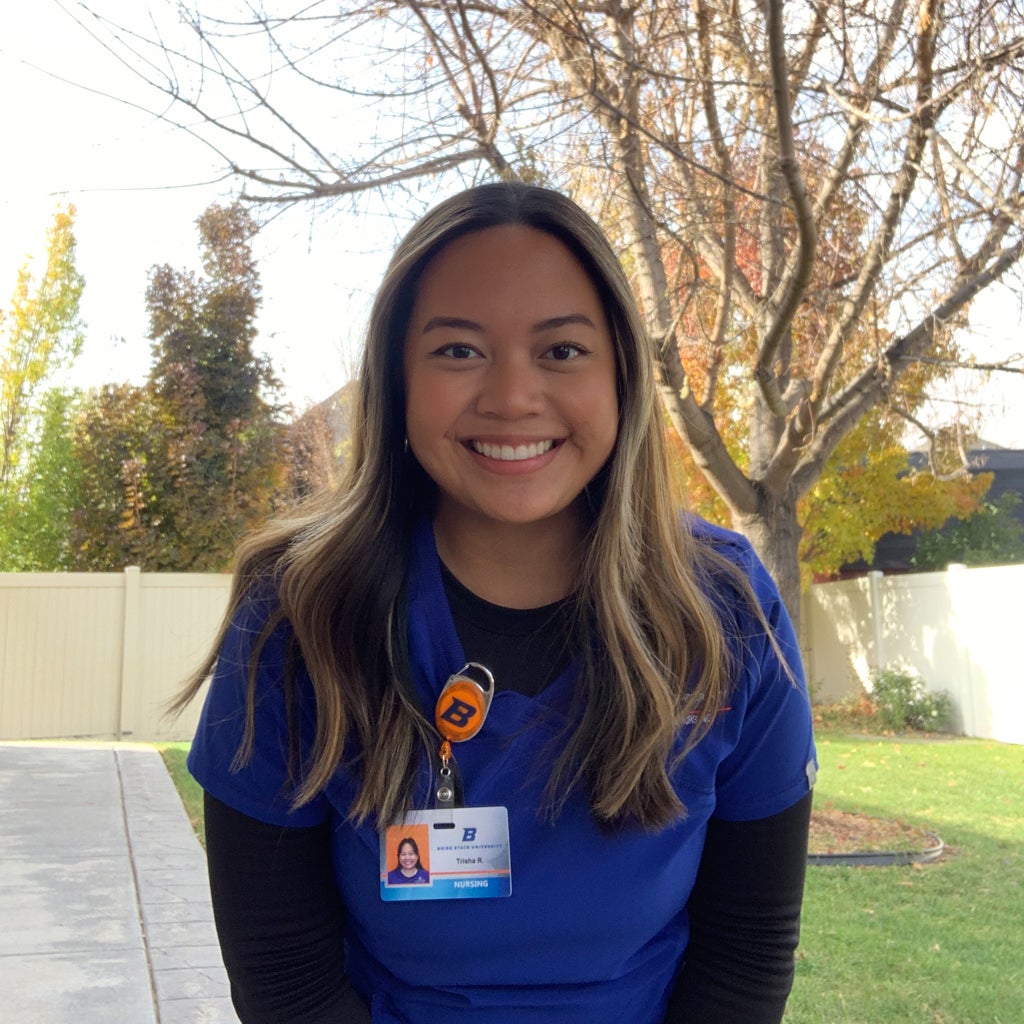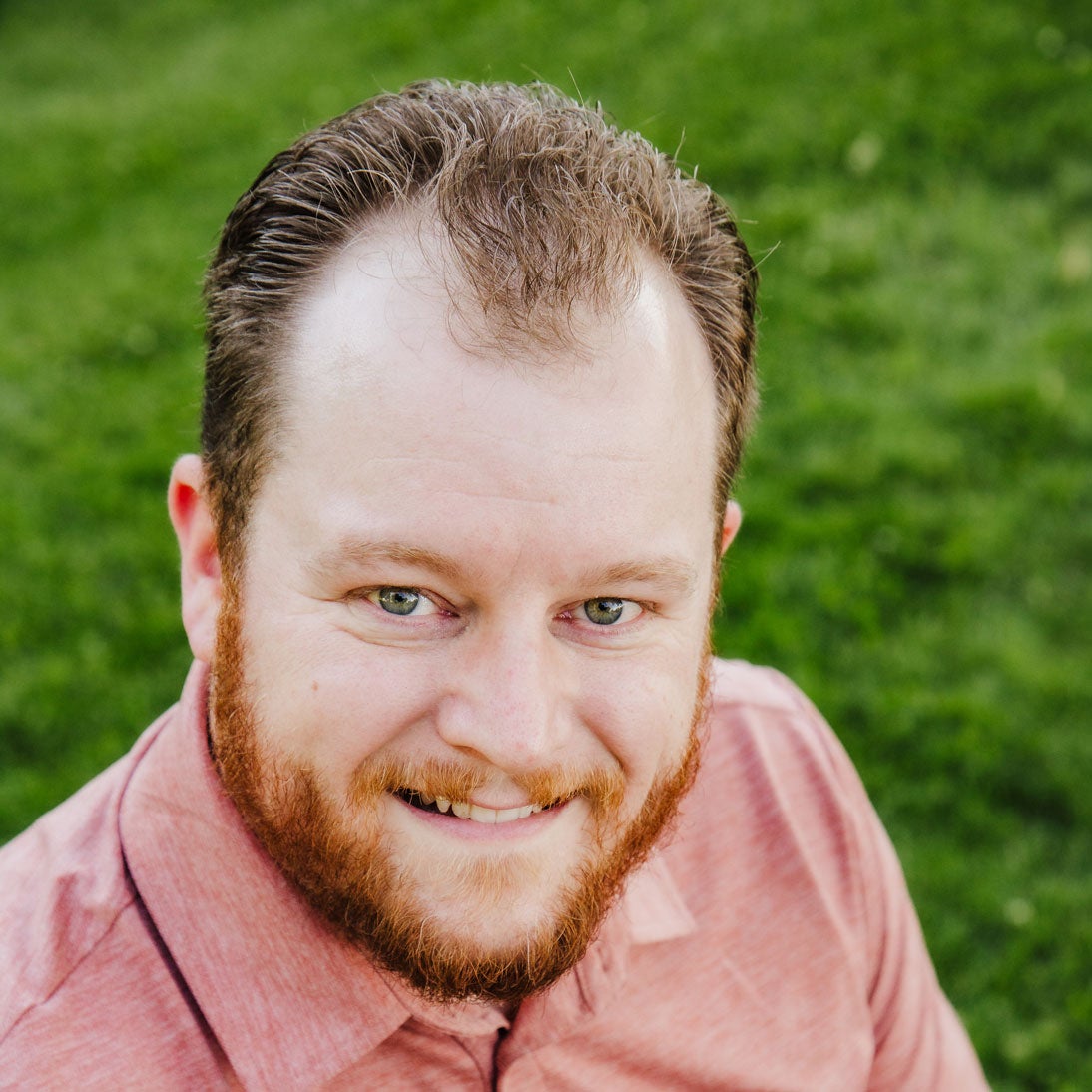Trisha Ruayana and Marc Binder are both in their second semesters of Boise State’s nursing program. This fall, they participated in their first clinical rotation at the Veterans Affairs (VA) Medical Center in Boise.
This is the first time either student has worked in a hospital dedicated to the care of veterans. Given the unique patient population, the experience comes with its own rewards and challenges.

“You have to bring more of your psych nursing skills in and just be more sensitive to the environment you’re creating for the patient,” Ruayana said. “A lot of these veterans have been through so much and war causes a lot of trauma. So just being mindful of the things you say, or even the sounds happening in the hallway, to prevent any outbursts and whatnot from the patients.”
Binder himself is a veteran; he served as an Air Force medic for 11 years before deciding to leave the military and pursue education full-time. His background helps him build rapport with veteran patients rather quickly.

“It’s a good talking point,” he said. “Being a veteran and taking care of a veteran, there’s almost an immediate trust.”
Navigating challenges and reaping the rewards
Binder explained that, just like for factory workers or coal miners, providers need to be aware of their patients’ potential occupational exposures to toxins. In the case of veterans, this usually means Agent Orange or burn pits.
“Just like any patient, it’s about learning their history,” he said. “And the military has a unique set of exposures, so it’s good to know that.”
Binder also emphasized how providers should be mindful of common veteran mindsets. “Veterans tend to be kind of stubborn,” he said. “They want to think that ‘No, I’m okay, I’m alright’ even though they may not be.”
“Sometimes there are patients who refuse certain care,” Ruayana said. This makes interacting with them difficult, but “I understand why they feel that way,” she said. “Nobody wants to be sick in the hospital, and they want to do as much as they can to feel – or gain – as much independence as possible.”
But both Binder and Ruayana noticed how the majority of patients are “all very sweet and very thankful for the care that we’re providing for them,” Ruayana said.
“The most rewarding thing is seeing how the patients get better,” Ruayana said. “Just knowing that these patients have a lot of support and resources available to them has been great.”
Binder agreed. “One of my favorite things is wheeling them out to their ride that’s coming to pick them up,” he said. “They’re always in a happy mood when they get to leave. That’s the fun part.”
Support and respect sets the VA apart
One element of the VA that stands out to Binder is the amount of respect given to all the veterans, even in their final hours of life. Staff ensure they’re never alone during this time, and after a veteran passes, “they essentially do the flag draping ceremony,” Binder said. “They play Taps and then they take them out in a respectable and honorable manner.”
While he’s witnessed more of a brotherly camaraderie between veteran providers and patients, the relationship between non-veterans and patients is steeped in the utmost respect and high regard.
“It’s nice to see that the patients are happy and they’re being well-taken care of, and the people that are taking care of them are very dedicated,” Binder said.
Ruayana, too, noticed how the culture of the VA sets the hospital apart. She would love to return there for future clinical rotations.
“I just really like how supportive all the staff is,” she said.
Initially, Ruayana was surprised at how many World War II veterans she’s been able to care for. But talking with them and learning from them has become one of her favorite parts about the clinical experience.
“Being able to sit with them and hear their stories of what they went through has been really great,” Ruayana said. “They have so much to teach us, but with how busy nursing is, you sometimes don’t get the chance to just sit and listen. I try to take the opportunity as much as possible.”